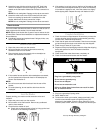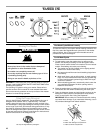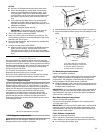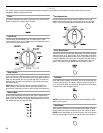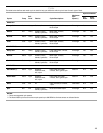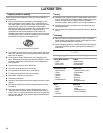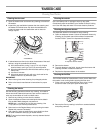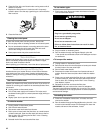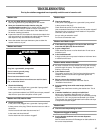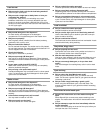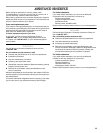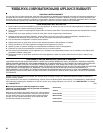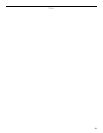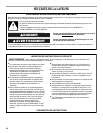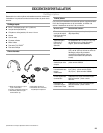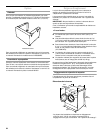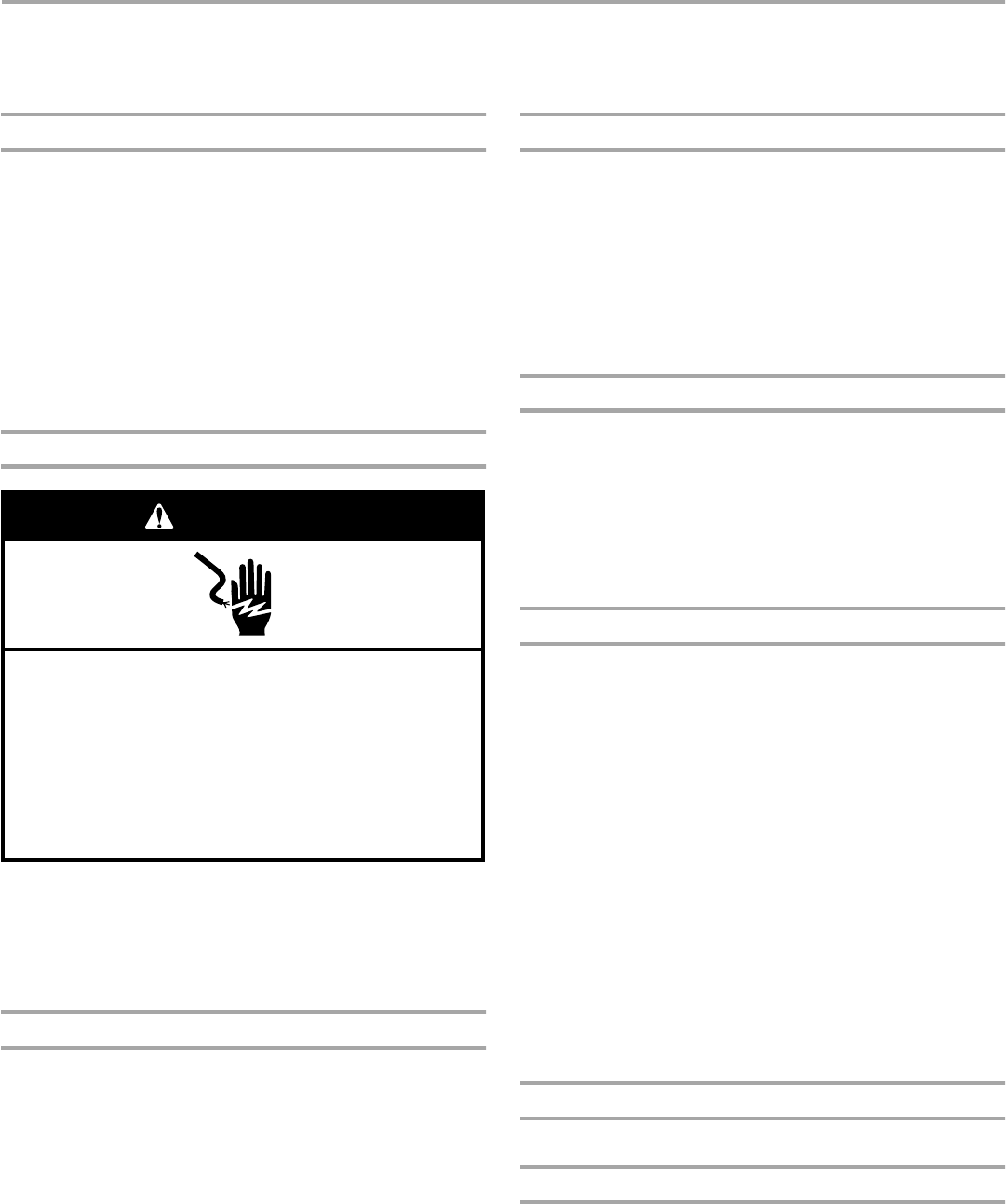
17
TROUBLESHOOTING
First try the solutions suggested here to possibly avoid the cost of a service call...
Washer odor
■ Do you use High Efficiency (HE) detergent?
Use only High Efficiency (HE) detergent in this washer.
■ Have you cleaned the washer interior using the
recommended procedure? Your washer interior should be
cleaned at least once per month to reduce or avoid any
accumulation of mold or mildew odors. See “Washer Care”
for interior cleaning procedure.
■ Inspect the interior of the washer for lint and other debris that
may accumulate on the basket and rubber bellows. Remove
and dispose of any accumulation as necessary.
■ Leave the washer door open between cycles to allow the
washer interior to dry out.
Washer won’t start
■ Check the following:
Is the power cord plugged into a grounded 3 prong outlet?
Is the washer door firmly closed?
Has a cycle been selected, but START has not been pressed?
Was the door open after completion of last cycle?
Washer won’t fill, wash or rinse
■ Check the following:
Is the power cord plugged into a grounded 3 prong outlet?
Is there power at the plug? Check electrical source or call an
electrician.
Are the hot and cold water faucets turned on?
Is the water inlet hose kinked?
Are the water inlet valve screens clogged?
Washer stops
■ Check the following:
Is the power cord plugged into a grounded 3 prong outlet?
Is there power at the plug?
Check electrical source or call an electrician.
Has a household fuse blown, or has a circuit breaker tripped?
Replace the fuse or reset the circuit breaker. If the problem
continues, call an electrician.
Are you using an extension cord?
Do not use an extension cord.
Washer won’t drain or spin
■ Is the drain hose clogged, or the end of the drain hose
more than 35" (88.9 cm) above the floor?
■ Is your voltage low?
Check electrical source or call an electrician. Do not use an
extension cord.
■ Is the load balanced?
A single or bulky item may cause imbalance. Add more items
or redistribute the load.
Washer makes noise or vibrates
■ As water is drained from the washer, you may hear air being
pulled through the pump. This happens during the end of
draining. It is normal.
■ Is the washer level?
The washer must be level. The four feet should be properly
installed, and the nuts should be tightened against the
washer cabinet.
■ Did you remove the transport bolts?
Make sure four bolts have been removed. See the
“Installation Instructions.”
■ Are you washing items with metal snaps, buckles or
zippers?
You may hear metal items touching the washer drum. This is
normal.
■ Is washer installed on a sturdy and solid floor?
Refer to the “Installation Requirements” for flooring
requirements. Noise and vibration may be reduced by placing
a piece of ¾" (19.1 mm) plywood underneath your washer.
The plywood may extend underneath both washer and dryer
to keep them at equal heights.
Washer leaks
■ Check household plumbing for leaks.
Dispensers clogged or leaking
■ Are the laundry products in the correct dispenser
compartment?
Add the correct amounts of HE detergent or fabric softener to
the correct compartments.
Electrical Shock Hazard
Plug into a grounded 3 prong outlet.
Do not remove ground prong.
Do not use an adapter.
Do not use an extension cord.
Failure to follow these instructions can result in death,
fire, or electrical shock.
WARNING



